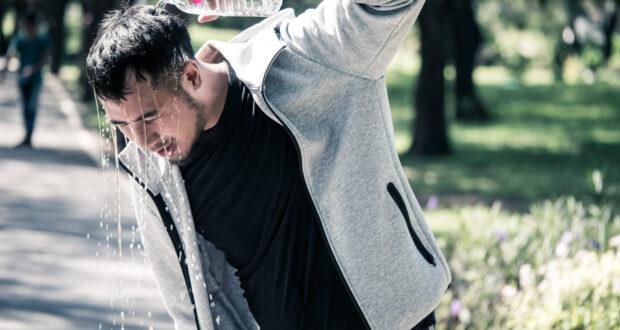Art Acevedo has found himself far from home, his comfort zone and his popularity.
What started six months ago as a “journey of faith”- as he has described his decision to leave a cushy job as top cop in Houston to become chief of the Miami Police Department – could soon end abruptly as he finds himself at the center of a political drama laced with communist Cuba and Cold War references that has put his tenure in jeopardy.
Miami’s city commission will gather Friday to discuss the progressive chief’s future as a trio of disgruntled local leaders push for his ouster, in an episode that analysts say underscores a long tradition of political wars and tribalism in a city trying to reshape its image as a burgeoning tech and culture capital.
“This is another example of the Game of Thrones-esque dysfunctional environment that is Miami politics, which sometimes border with the most cliched banana republic,” said Fernand Amandi, a Democratic pollster and lecturer on political science at the University of Miami, adding that Cuban American politicians often weaponize the trauma over the lost island as a political tactic.
Social media savvy, with a large following and a big personality, Havana-born Acevedo started his career in Los Angeles as an officer with the California Highway Patrol and went on to become chief of the Austin and later Houston police departments.
His unrestrained style gained him popularity in Texas, where he marched with protesters after the killing of George Floyd, advocated for gun control and blasted the National Rifle Association, upping his profile and launching him onto the national stage. He often posts photos with community members and spars with politicians over social media. On CNN and Fox News, he has denounced former president Donald Trump and Florida Gov. Ron DeSantis, despite being a Republican himself.
When Mayor Francis Suarez announced Acevedo’s appointment in April, he hailed him as the “Michael Jordan of police chiefs.”
During his short tenure, nonetheless, the chief has managed to ruffle more than a few feathers. He has asked the U.S. Department of Justice to review the city’s internal affairs process and incidents of excessive use of force by officers. He has fired two high-ranking officers and demoted several supervisors, including the second-highest ranked female Black officer. And he angered the rank-and-file after telling the media officers should get vaccinated for the coronavirus or risk being fired.
But what has perhaps sparked the most ire is Acevedo’s remark that the department was “run by a Cuban mafia.” His words struck a nerve in South Florida, home to hundreds of thousands either born on the island or of Cuban heritage, who recalled that Fidel Castro used those same words to refer to exiles who opposed his communist regime.
Acevedo – who was raised in California and declined to comment for this story – said the remark took place during a discussion on the importance of diversity within the department’s ranks and that he did not know the history behind the phrase when he used it.
“While the statement was made to be humorous, I have since learned that it is highly offensive to the exile Cuban community, of which I am a proud member,” he said.
The fury that followed showed that even six decades after Castro’s revolution, Cold War-era rhetoric still has the power to wound hearts and careers in Miami.
“He was born in Cuba but it doesn’t mean that whatever action he takes is permitted,” said Manolo Reyes, one of the Cuban American leaders on the city commission incensed by Acevedo’s actions. “He should have known that Castro coined the phrase Cuban mafia, and he should have known that he cannot compare us with a communist regime.”
The political debacle was at full display on Monday in a special meeting called by irate city commissioners looking to build pressure on City Manager Art Noriega to fire Acevedo. The commissioners do not have the power to dismiss Acevedo. They can, however, vote that they have no confidence in the chief, pushing Noriega to take some sort of action.
Commissioner Joe Carollo spent hours reading news clips of past controversies during Acevedo’s stints in Texas and California, including one sexual harassment allegation by a former girlfriend. In the most outlandish and bizarre moment of the meeting, Carollo played a video of Acevedo dressed in a form-fitting Elvis Presley jumpsuit as part of a dance performance at a fundraiser, asking the city manager if he considered it “acceptable” behavior for the police chief to wear such “tight” pants in public.
“He is not accountable to anyone,” Carollo said. “Not accountable to the city manager or to the residents of the city of Miami. Period.”
Alexis Piquero, a criminologist and sociology chairman at the University of Miami, called the meeting a “comical but embarrassing spectacle” that had nothing to do with policing.
Piquero said several factors had resulted in Acevedo’s current quandary, starting with his unexpected hiring; he was picked by the mayor and bypassed the standard process. He also “rubbed some people the wrong way” by removing and demoting a handful of seasoned and well-liked officers while struggling to navigate local politics.
“But he is learning very quickly,” Piquero said.
In a memo leaked before the meeting, Acevedo said he has encountered “intense” resistance to change in the department. He claimed commissioners Alex Diaz de la Portilla, Carollo and Reyes were trying to interfere with an internal affairs investigation and defunded a position that would have allowed him to hire a former co-worker from Houston for a second-in-command post out of spite.
He also accused Carollo of directing him to arrest “agitators” at a “Patria y Vida” event in July to support an unprecedented wave of protests in Cuba, saying the commissioner told him to “arrest those communists and get them the hell out of here.” Acevedo said he advised investigators to keep an eye on the area, but that Carollo was incensed no immediate arrests were made.
The chief said that in the weeks since, the commissioner has engaged in a “sustained attack” to tarnish his reputation for his refusal to arrest the commissioner’s “enemies” and those “exercising their First Amendment rights.”
“If I or M.P.D. give in to the improper actions described herein as a Cuban immigrant, I and my family might as well have remained in Communist Cuba, because Miami and M.P.D. would be no better than the repressive regime and the police state we left behind,” he wrote.
As a bewildered Miami watched the commission’s meeting on Monday, some said the scuffle between Acevedo and political leaders underscores the minefield newcomers face while trying to bring change. Others said the chief nonetheless bears some responsibility for inflaming tensions.
Billy Corben, a documentary filmmaker and political gadfly, said the meeting highlighted the “tribal politics” that run deep in the city’s social and political fabric, with Acevedo committing the original sin of being an outsider.
“He is a Cuban guy but he is not a Miami guy, and most importantly he is not ‘their’ guy,” Corben said. “He doesn’t understand the rules and won’t subscribe to the corruption and friends and family game.”
“Since he got here he has shaken things up and struck fear into the status quo, and has not been afraid to call up corruption and misconduct,” he added.
Amandi, the Democratic pollster, said he believes Acevedo’s star status itself has aggravated powerful local elected officials.
“The greatest crime he has committed is that he has gotten more media coverage and a higher profile than some of these commissioners, and arguably the mayor himself, and that is a no no here,” he said.
Reyes said the commissioners have acted within their powers and that Acevedo’s allegations of interference have created “a cloud of doubt” over the city government that should be cleared out in an independent investigation. But he also expressed some of the criticism shared by others that has to do less about Acevedo’s actions as a police chief, and more about his characteristic bombastic, off-the-cuff manner.
“You were brought here to be a chief, not a politician,” Reyes said. “He should take out his uniform before he says his opinions.”
Whether Acevedo can maintain the backing of those who brought him to Miami and among the city’s police officers remains to be seen. A recent survey conducted by the Miami Fraternal Order of Police found 79% of those polled do not have confidence in the chief’s ability to lead the department.
Suarez – who has risen to fame touting Miami’s potential as a new Silicon Valley – was notably absent at Monday’s meeting and told The Washington Post in a statement that “any adversarial situation between city administrators and the elected leadership that becomes personal in nature is both uncomfortable and unfortunate.”
Commissioner Ken Russell, who has praised Acevedo’s support of criminal reform, said he didn’t attend Monday’s meeting because he believes it should not have happened in the first place. Still, he said, the current political battle Acevedo faces comes with the job.
“Reforming a department is more than just discipline,” he said. “You need to be able to navigate the complicated politics of unions and elected officials.”
As the chief’s destiny remains unresolved, Amandi said the “telenovela-like” episode for some will confirm long-standing preconceptions of the magic city: “That it is a city you want to date,” he said, “but you never want to marry.”
















